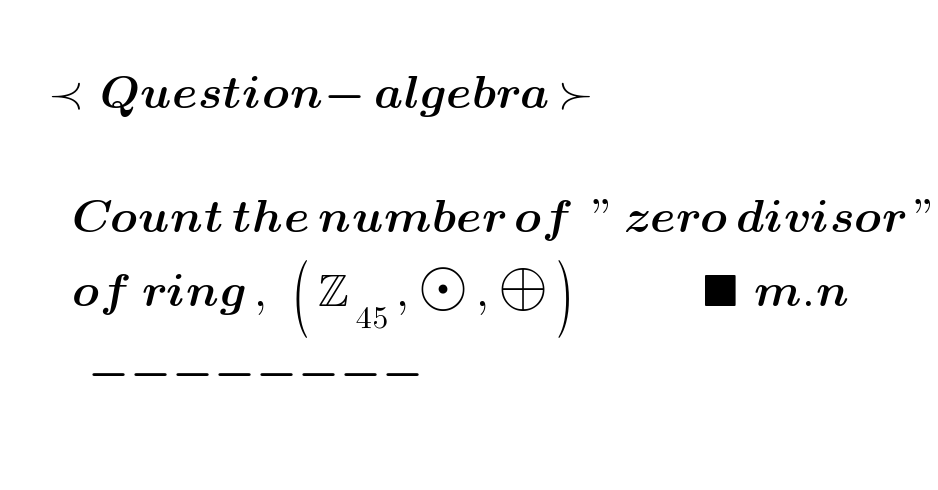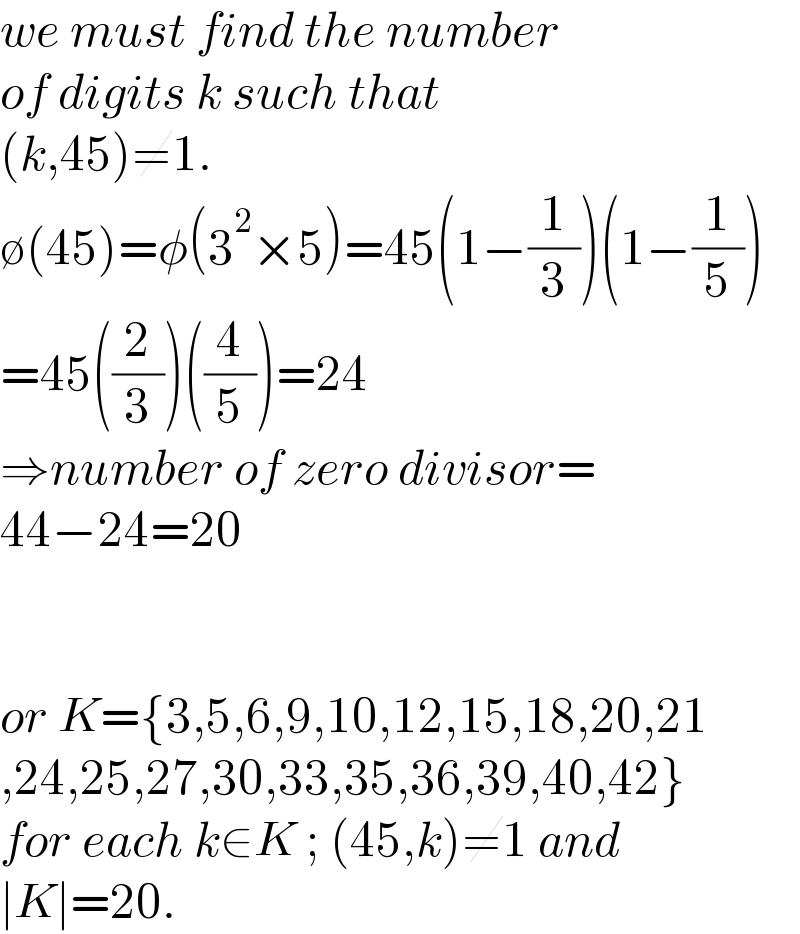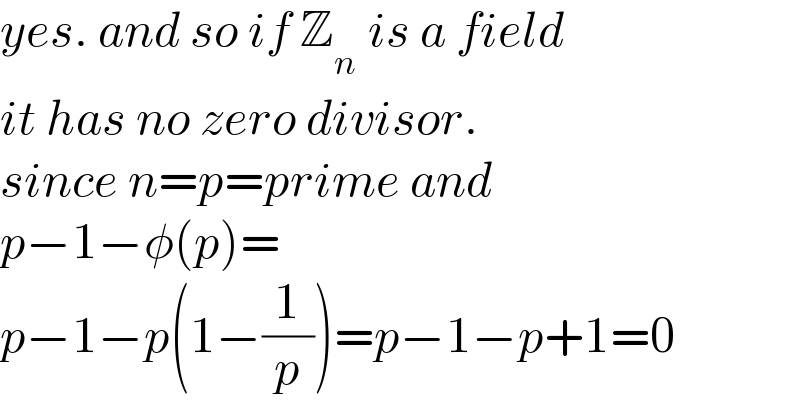
Question and Answers Forum
Question Number 175132 by mnjuly1970 last updated on 20/Aug/22

Commented by kaivan.ahmadi last updated on 20/Aug/22

Commented by mnjuly1970 last updated on 21/Aug/22
![thank you so much.. in fact {[n − (ϕ (n) +1 )]=easy} =45−25=20](Q175145.png)
Commented by kaivan.ahmadi last updated on 20/Aug/22

Commented by mnjuly1970 last updated on 21/Aug/22

